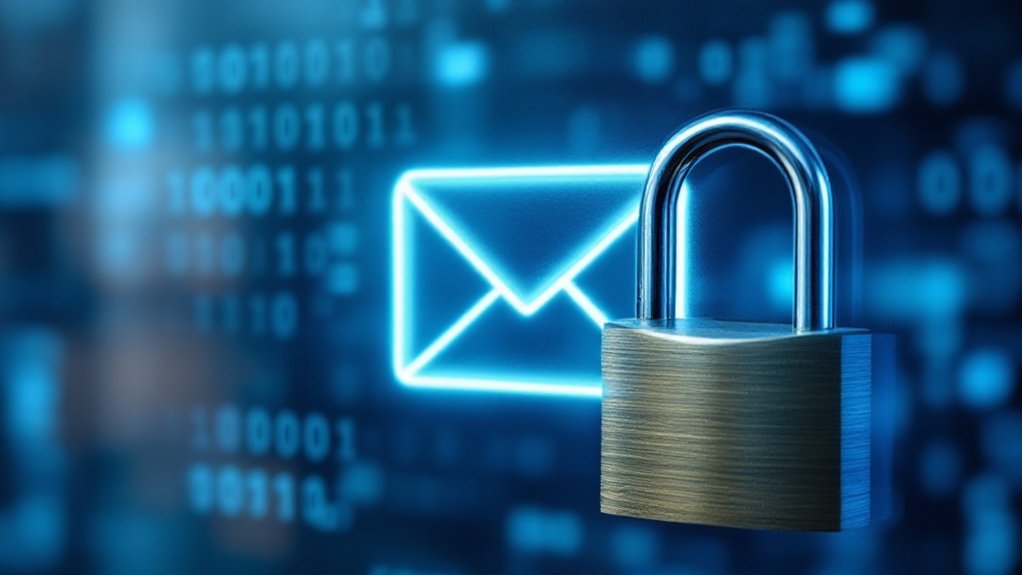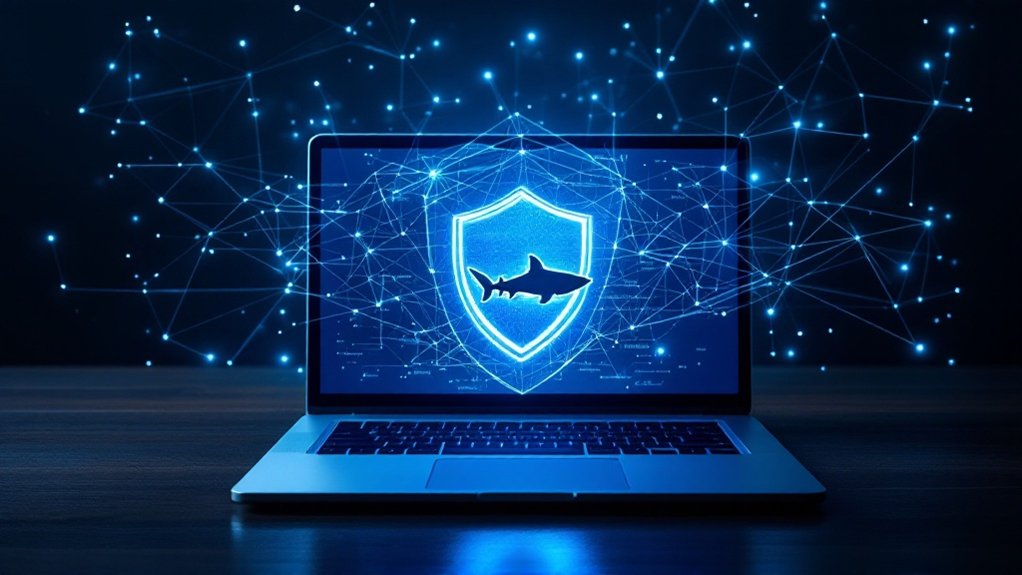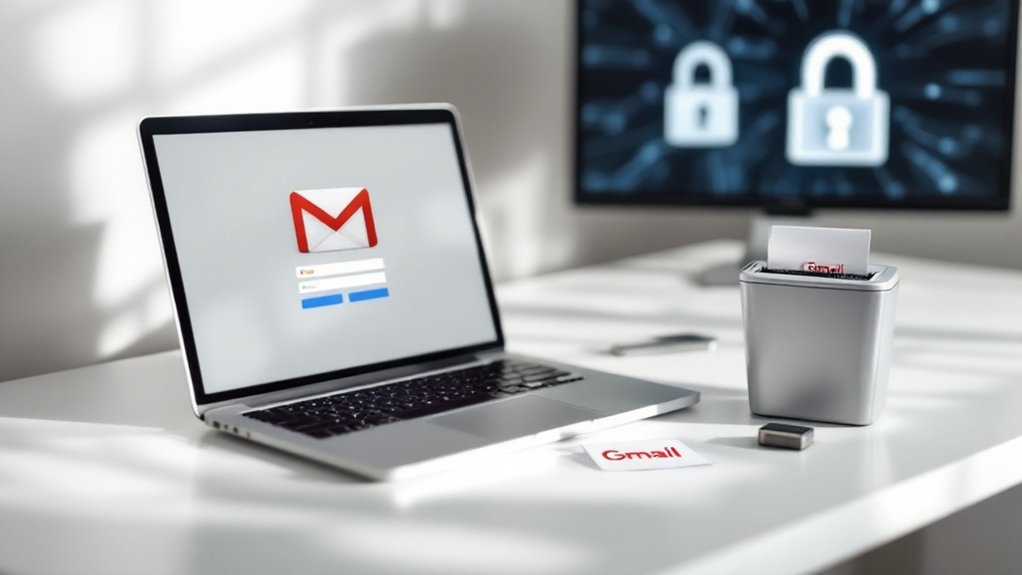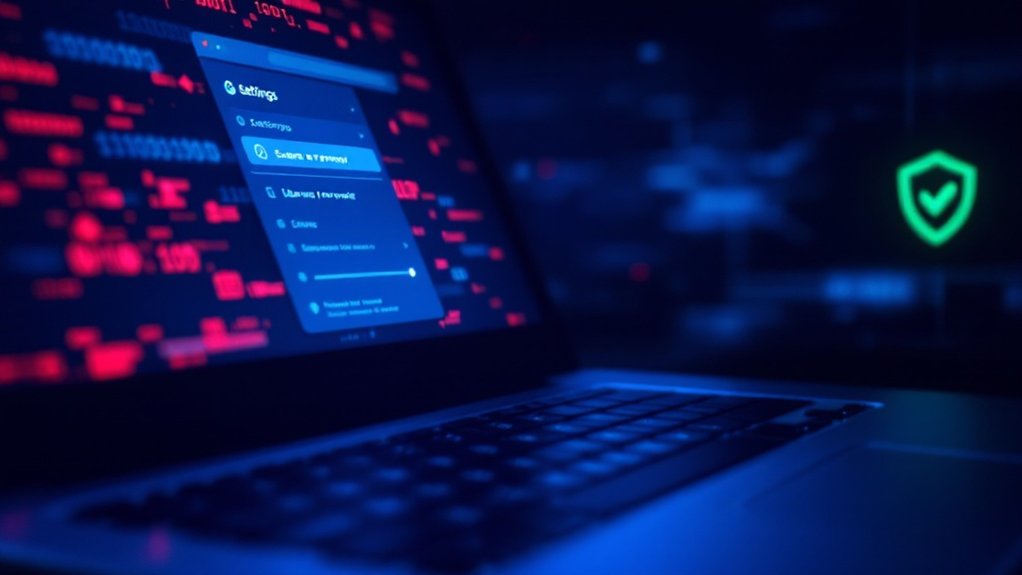ProtonMail stands as the leading secure email service, offering end-to-end encryption developed by CERN scientists and protected by Switzerland’s strict privacy laws. Other top contenders include Tutanota and Mailbox.org, operating under Germany’s strong data protection framework, as StartMail provides PGP encryption from its Netherlands base. These services feature open-source code, self-destructing messages, and encrypted calendars, with each platform offering unique security protocols and features that warrant careful examination.
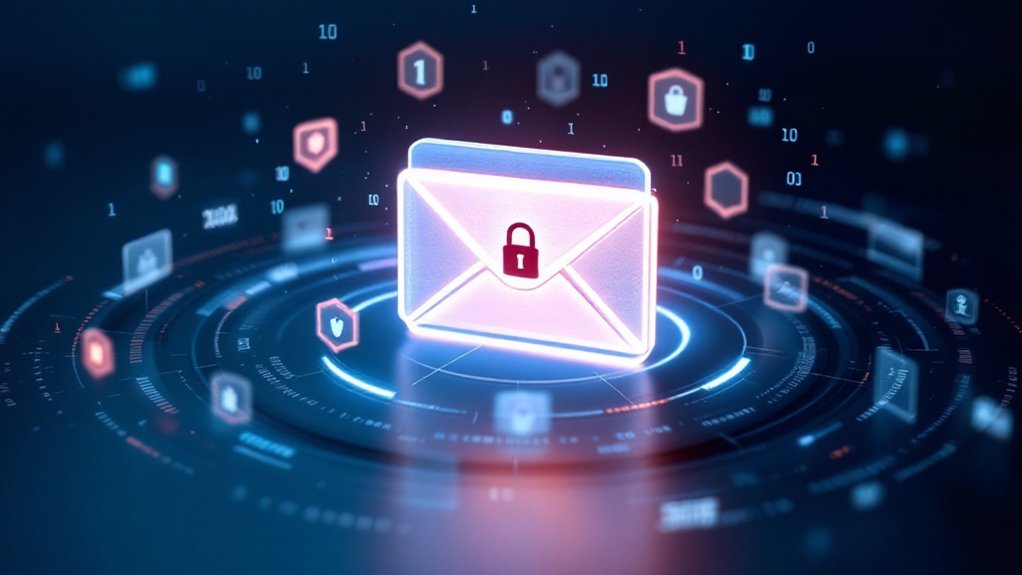
In an increasingly digital world, secure email services have become essential tools for protecting sensitive communications from surveillance and data breaches. Among the leading providers, ProtonMail stands out with its end-to-end encryption protocol and strategic location in Switzerland, where strict privacy laws offer additional protection for user data. The service’s commitment to security is further demonstrated through its open-source code and innovative features like self-destructing emails. Founded by CERN research scientists, ProtonMail has established itself as a pioneer in privacy-focused email services.
Germany-based providers Tutanota and Mailbox.org utilize the country’s strong data protection framework as they offer distinct advantages. Tutanota provides extensive encryption across emails, contacts, and calendars, while Mailbox.org distinguishes itself with environmentally conscious green energy servers and secure video conferencing capabilities. Both services maintain open-source code policies, enabling independent security audits. Their approach to security includes Transport Layer Security for protecting data during transmission.
StartMail, operating from the Netherlands, offers a unique approach by fully integrating PGP encryption while maintaining compatibility with traditional email protocols through IMAP and SMTP support. This allows users to send encrypted messages even to recipients who don’t use PGP, broadening its practical application in everyday communications. The service offers secret question encryption for sending secure messages to non-PGP users.
Security-focused alternatives like Tuta have evolved to address specific privacy concerns, implementing end-to-end encryption that extends to email subject lines and enabling anonymous signup processes. The service’s availability on F-Droid provides an option for users seeking Google-free Android experiences, while cross-platform support guarantees accessibility across major operating systems.
Recent entrants to the market, such as Skiff and Zoho Mail, have introduced innovative approaches to secure communication. Skiff employs alternative encryption algorithms to PGP, while Zoho Mail integrates AI-assisted email management within its security framework. These services demonstrate how emerging technologies can improve both security and usability in email communications.
When evaluating secure email services, considerations extend beyond encryption protocols to include factors such as jurisdiction, transparency through open-source code, and practical features that facilitate secure communication. The best choice depends on individual requirements for privacy, usability, and integration with existing communication workflows.
Frequently Asked Questions
Can My Employer Read My Personal Emails Sent Through My Work Account?
Employers have broad legal rights to monitor and access any emails sent through company email accounts, regardless of whether the content is personal or work-related.
Under the Electronic Communications Privacy Act, organizations can monitor workplace communications with written notice to employees.
Company email accounts and associated data are considered employer property, not private employee communications.
Studies indicate that 28% of employers have terminated staff for email misuse.
How Often Should I Change My Email Password for Maximum Security?
Best practices for email password security recommend changes every 365 days, aligning with NIST guidelines, rather than frequent modifications that often lead to weaker password creation.
Immediate changes become necessary after security incidents, such as data breaches, account compromises, or use of unsecured networks.
Users with strong passwords, two-factor authentication, and password managers can maintain this annual schedule, whereas those with simpler passwords should consider more frequent updates.
What Happens to Encrypted Emails if I Forget My Password?
When users forget passwords for encrypted emails, the encrypted content typically becomes permanently inaccessible without proper recovery methods in place.
Most secure email providers offer recovery options through backup encryption keys, recovery phrases, or device-based keychain storage.
Nevertheless, if no recovery mechanism was established beforehand, the mathematical nature of encryption means the data remains irretrievably locked, as providers cannot decrypt messages without proper authorization.
Are Free Secure Email Services as Reliable as Paid Ones?
Free secure email services typically offer lower reliability compared to their paid counterparts, with differences in uptime, storage capacity, and feature consistency.
Whereas services like ProtonMail and Tutanota provide basic encryption, paid options typically maintain 99.9% uptime, offer 5GB+ storage, and deliver more consistent performance.
Free services often experience more frequent outages, face storage limitations of 500MB-1GB, and may restrict features during peak usage periods.
Can Government Agencies Access Emails Stored on Overseas Email Servers?
Government agencies can access emails stored on overseas servers through various legal mechanisms, though the process remains complex.
Whereas the U.S. Supreme Court’s Microsoft case highlighted jurisdictional challenges, the CLOUD Act of 2018 now explicitly allows agencies to compel U.S. providers to disclose data stored abroad.
Nevertheless, international agreements, mutual legal assistance treaties, and foreign privacy laws may still restrict or regulate such access, requiring agencies to navigate multiple legal frameworks.
